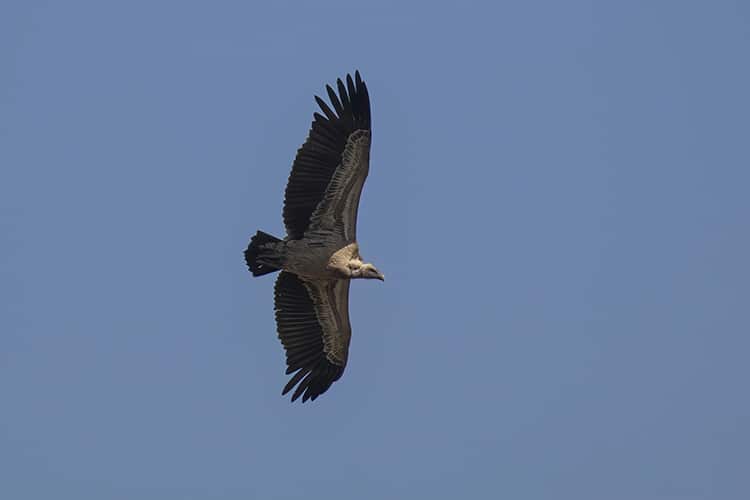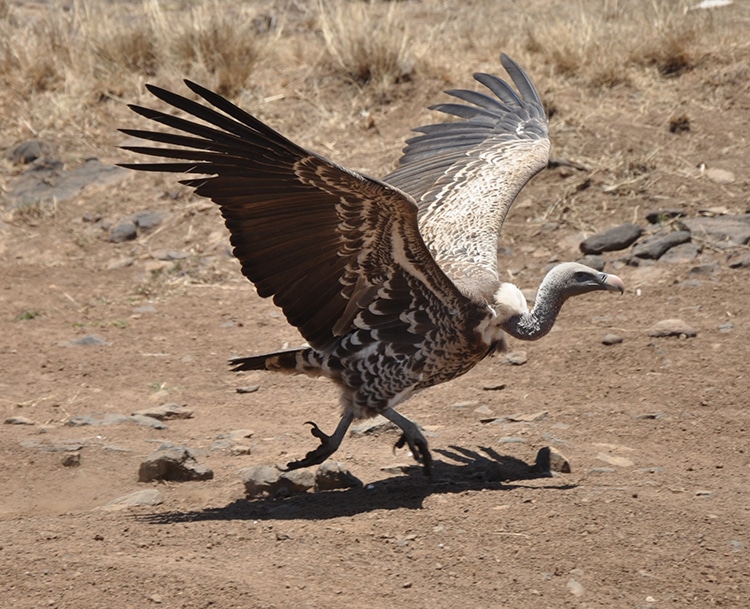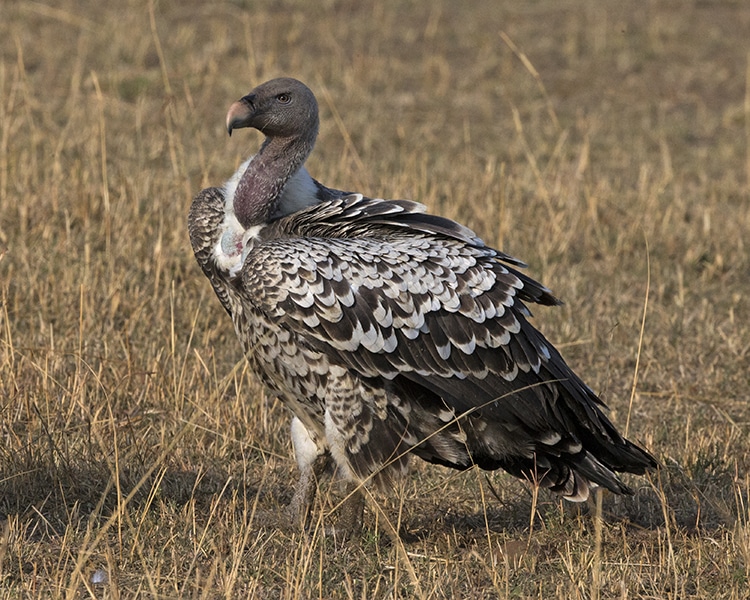
Photo: Charles J. Sharp via Wikimedia Commons, CC BY-SA 4.0 DEED
It’s a bird! It’s a plane! It’s Superman! No. Actually, that winged creature high in the sky is a Rüppell’s vulture. Native to the Sahel region of Africa, this magnificent species of griffon vulture stretches eight feet in wingspan and 33 to 38 inches in height. Its beady eyes, long neck, and brown and white feathers are perfectly crafted for the desert scavenger. But its size is far from its most impressive trait. The species holds the record for the highest-recorded flight by a bird. One was actually cruising at an impressive 37,000 feet when it (tragically) collided with a plane.
The unfortunate bird was flapping away over the Côte d’Ivoire in 1973 when it met its unfortunate end. The plane registered 36,100 feet when the bird impacted, causing issues with one motor on the aircraft. While thankfully, all humans on the plane landed safely, all that remained of the vulture were its distinctive feathers. These identified the species.
Flying at that height is uncommon among birds for several reasons, including the lower oxygen levels. But the Gyps rueppellii has, according to the Smithsonian, a special “alteration of one of its proteins, which allows the bird to fly efficiently despite lower pressure and available oxygen.”
Aside from their high-flying capabilities, these special vultures are remarkable in other ways. For instance, an individual can live up to 50 years. They fly for up to seven hours a day in search of carrion to feast upon. They are also quite hearty. Rancid remains do not bother them, including anthrax, botulism, and cholera lurking in their meat. They nest with their mates and lay single eggs, breeding small vulture families.
Unfortunately, the IUCN has now declared them endangered. Poisoning that ends up in their food supply and poaching have limited their numbers. These remarkable creatures may be scavengers, but they are a critical part of the ecosystem from the Earth to the high reaches of the sky.
The Rüppell’s vulture holds the record for highest known flight, having collided with an airplane at 37,000 feet.

Photo: Snowmanradio via Wikimedia Commons, CC BY-SA 2.0 DEED

Photo: Lip Kee via Wikimedia Commons, CC BY-SA 2.0 DEED
h/t: [IFL Science]
Related Articles:
Arctic Researchers Get Surprised by Polar Bear Visitors While Making Breakfast
New Evidence Suggests Bioluminescence Has Been Present in Animals for at Least 540 Million Years
Incredible 4K Footage of Sweeping Starling Murmuration Over the Yorkshire Wetlands
Ancient Burial Site Reveals Foxes May Have Been Human‘s Best Friend Before Dogs
